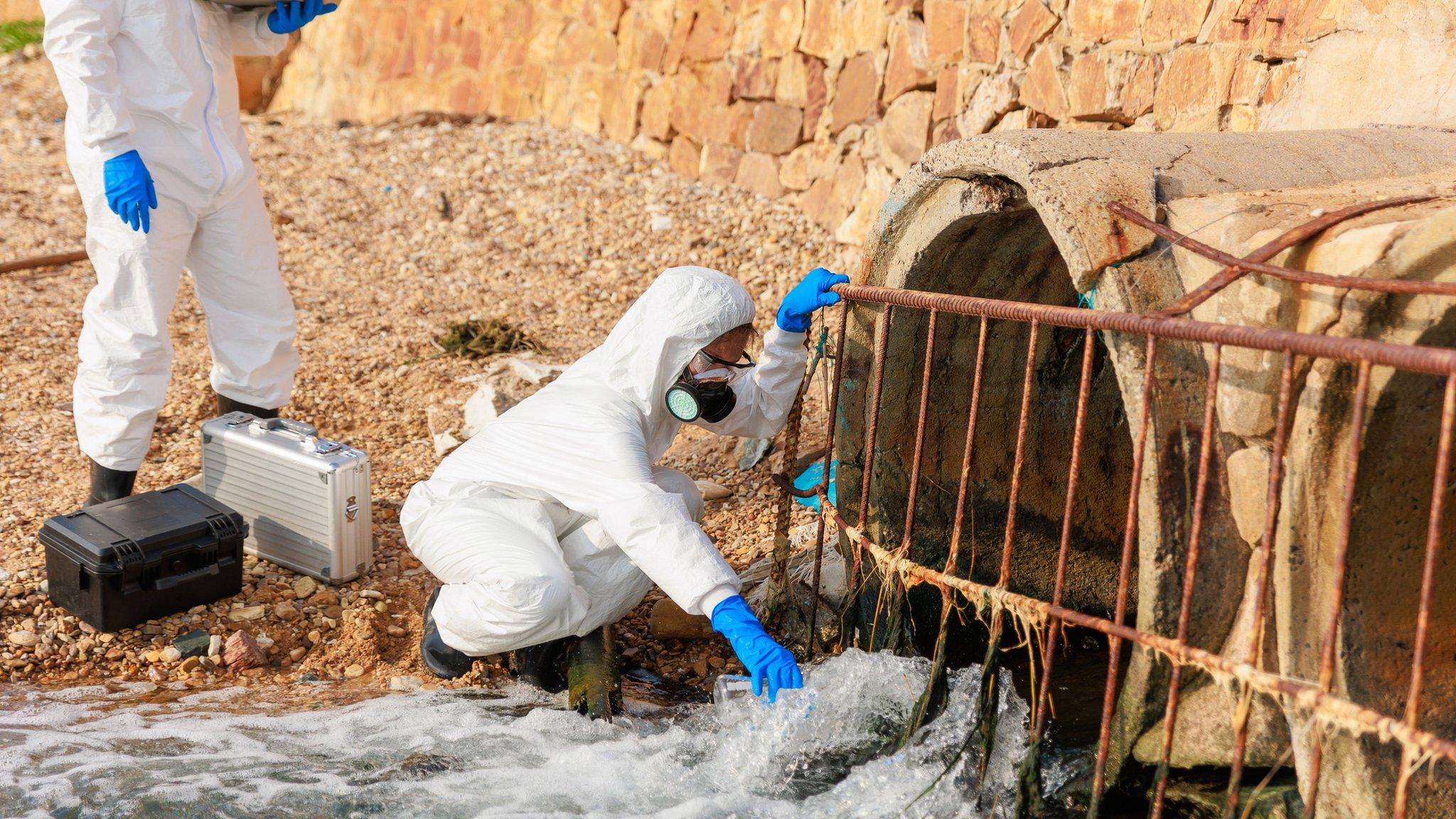Water firm investigates surge in sewage spills in Devon
- Published
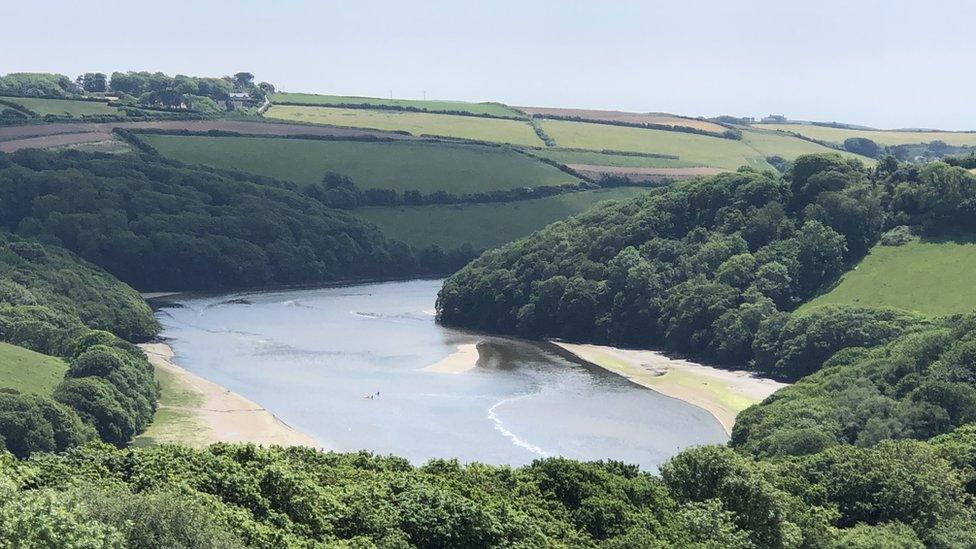
The River Avon flows from Dartmoor to the sea on the south Devon coast
South West Water (SWW) is investigating the "high frequency" of spills from two sewage plants into a popular swimming river in south Devon.
Sewage discharges from storm overflows at the Diptford and Moreleigh plants rose from 128 in 2021 to 207 in 2022, according to Environment Agency data., external
The number of hours of discharge rose from 450 in 2021 to 1,056 in 2022.
South West Water (SWW) said work at both sites should reduce the level of spills by the end of July.
A conservationist said he could not understand what had caused the increase in the number of discharges.
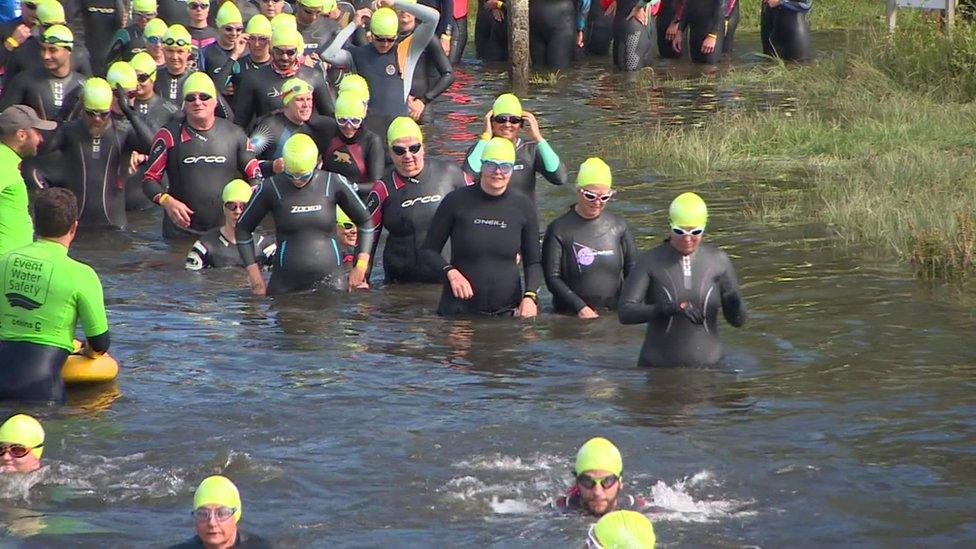
Hundreds of swimmers take part in the annual Bantham Swoosh event in the River Avon
The River Avon is a popular river for water sports enthusiasts and every year hundreds of swimmers take part in the Bantham Swoosh swim from Aveton Gifford to the sea.
Discharges from storm overflows are supposed to operate in times of heavy rain to prevent homes and businesses flooding.
The discharges into the River Avon at Diptford sewage treatment works rose from 83 in 2021 to 119 in 2022, according to the EA statistics.
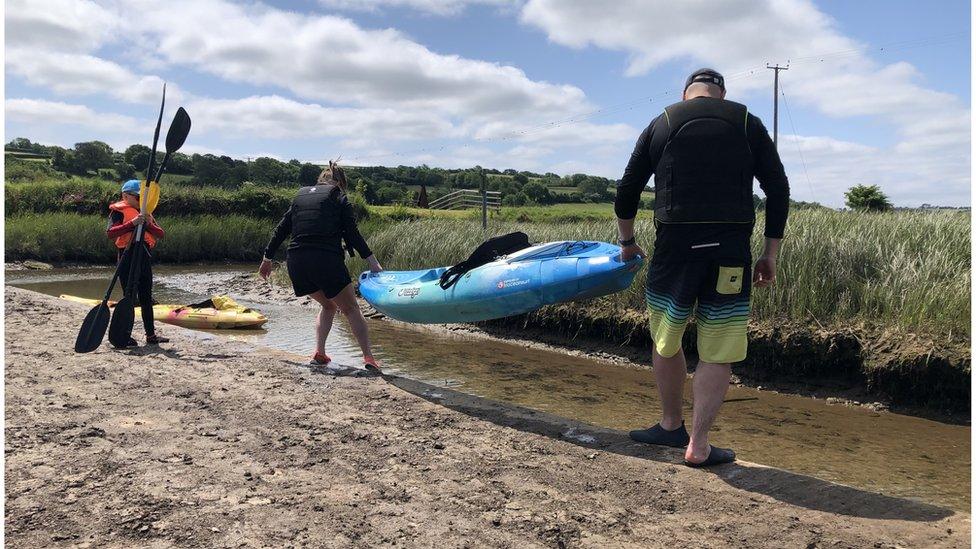
Kayakers, canoeists, paddleboarders and swimmers all use the river
Discharges from storm overflows at Moreleigh on Torr Brook, a major tributary of the Avon, rose from 45 in 2021 to 88 in 2022.
The Environment Agency data says investigations by SWW at Moreleigh and Diptford have been triggered by "high spill frequency".
The average number of spills across SWW's network dropped from 38.9 to 28.5 from 2021 to 2022, external, "due to a combination of dry weather and our interventions and investments", said the water firm.
SWW said it was committed to achieving an average of 20 spills per storm overflow per year by 2025.
The company was fined a record amount of more than £2.1m in April after admitting it caused pollution at five sewage treatment works and pumping stations in Devon and Cornwall.
It said "improvements" at Diptford and Moreleigh by the end of July "should reduce the level of spills from those sites".
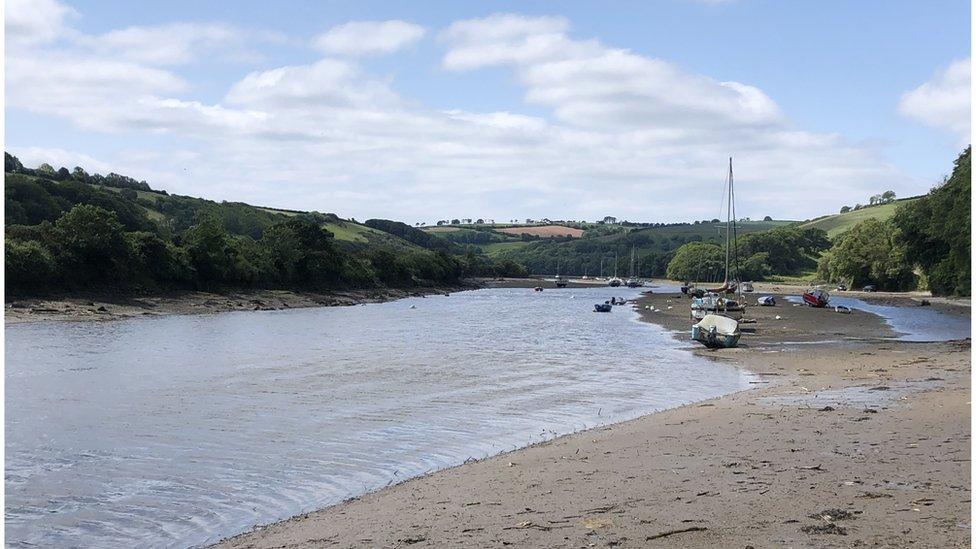
The River Avon in south Devon is also known as the River Aune
A SWW spokesperson said: "We are reducing the use of storm overflows and our plan is working but there is more to do.
"We want everyone to feel confident about water quality and to know that we are serious about reducing the use of storm overflows.
"We've installed 100% monitoring on our storm overflows, ahead of target.
"We are investing significantly to reduce our impact on rivers and we have plans to invest in a number of storm overflows impacting the River Avon."
The nearest designated bathing site, where water is tested by the Environment Agency, is Bantham at the mouth of the river where the quality was classed as "excellent" in 2022., external
'Idyllic'
The River Avon, also known as the River Aune, originates in bogland on Dartmoor and flows through the South Devon Area Of Outstanding Natural Beauty (AONB) to the sea.
Dr Stuart Watts, chairman of the river watchdog the Aune Conservation Association, told BBC News that on a nice day the lower reaches of the river are crowded with people in boats and kayaks, stand-up paddleboards and swimming.
"It's just idyllic, it's wonderful," he said.
"It's the artery that feeds everything in the Avon valley which is central to the South Devon Area of Outstanding Natural Beauty and the diversity of that area is dependent on the river in many respects."
He said the increases in discharges were a mystery.
"From my own experience as a gardener 2022 was a terrible year for rainfall and yet here we are at Diptford and Moreleigh having these huge increases in discharges.
"The excuse of heavy rainfall which causes these discharges is just not there.
"We don't understand why they occurred, but for a significant time there was sewage in whatever form being discharged into the river.
"We don't know what those discharges were made of or how much they were diluted.
"They say they are going to fix them, but we don't know what went wrong and we don't know what they are doing so we'd like to know more detail."
Dr Laurence Couldrick, chief executive of the Westcountry Rivers Trust, said a "huge amount of pressure" on rivers also came from farm pollution such as slurry and chemical run-off from fields.
He said live pollution alerts on rivers were a "vital step" and "making it publicly available even more so because it allows people to understand when it is happening and why it's happening".
"People want to know when it's safe to swim in our rivers and seas," he said.
An Environment Agency spokesperson said: "We are holding the water company industry, including SWW locally, to account on a scale never seen before.
"This includes measures to address concerns about flow and storm overflows, as well as increased enforcement action for pollution incidents.
"Although we are unable to comment on this specific case, we are spending considerable resource both locally and nationally looking at the compliance of sewer overflows."

Follow BBC News South West on Twitter, external, Facebook, external and Instagram, external. Send your story ideas to spotlight@bbc.co.uk.
- Published23 May 2023
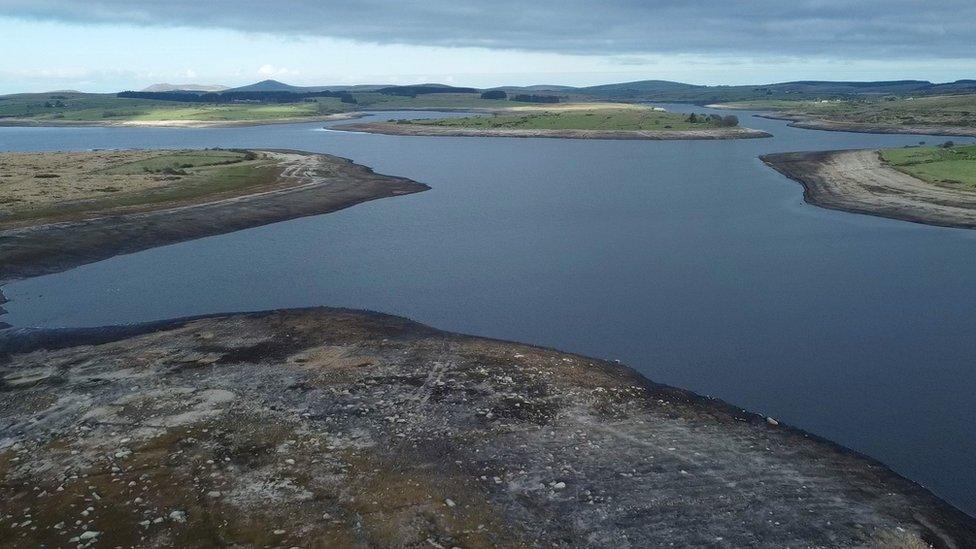
- Published21 May 2023
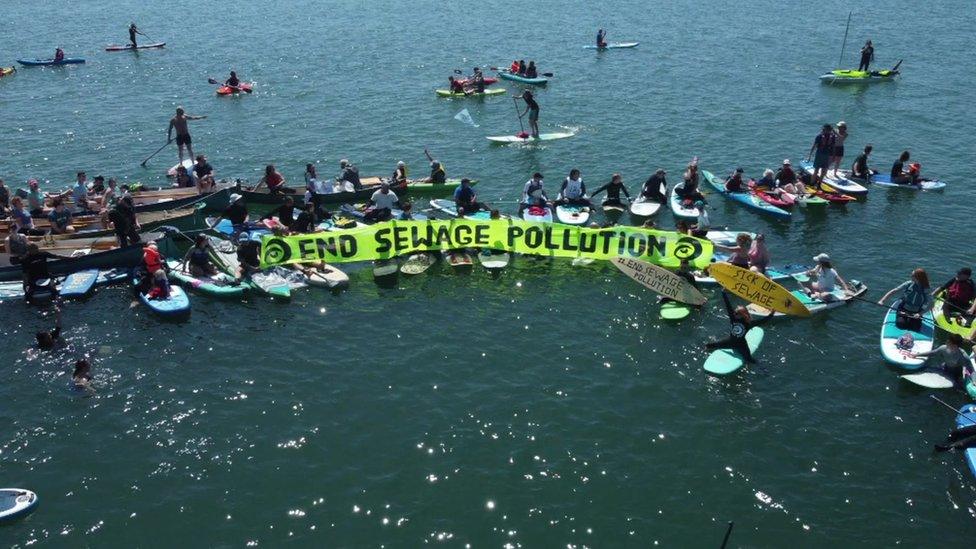
- Published26 April 2023
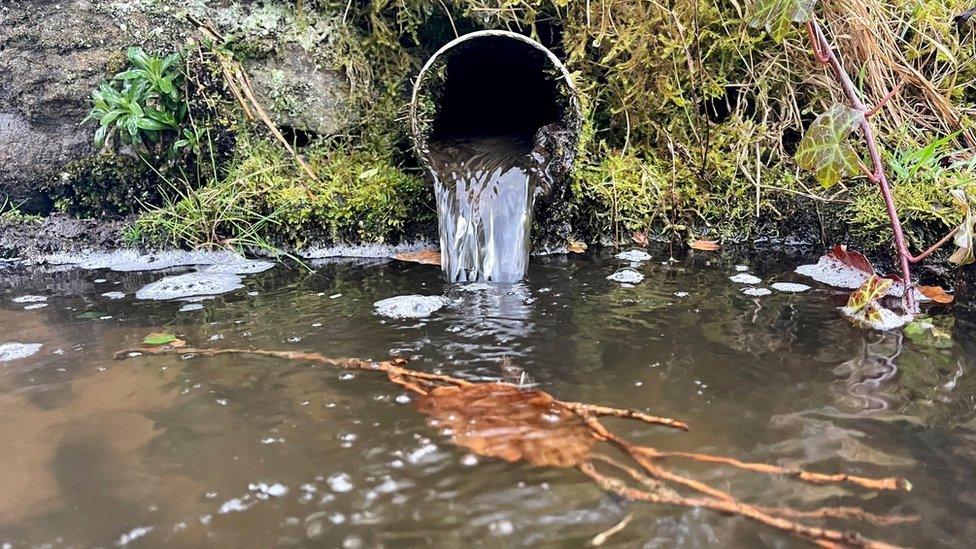
- Published28 June 2022
